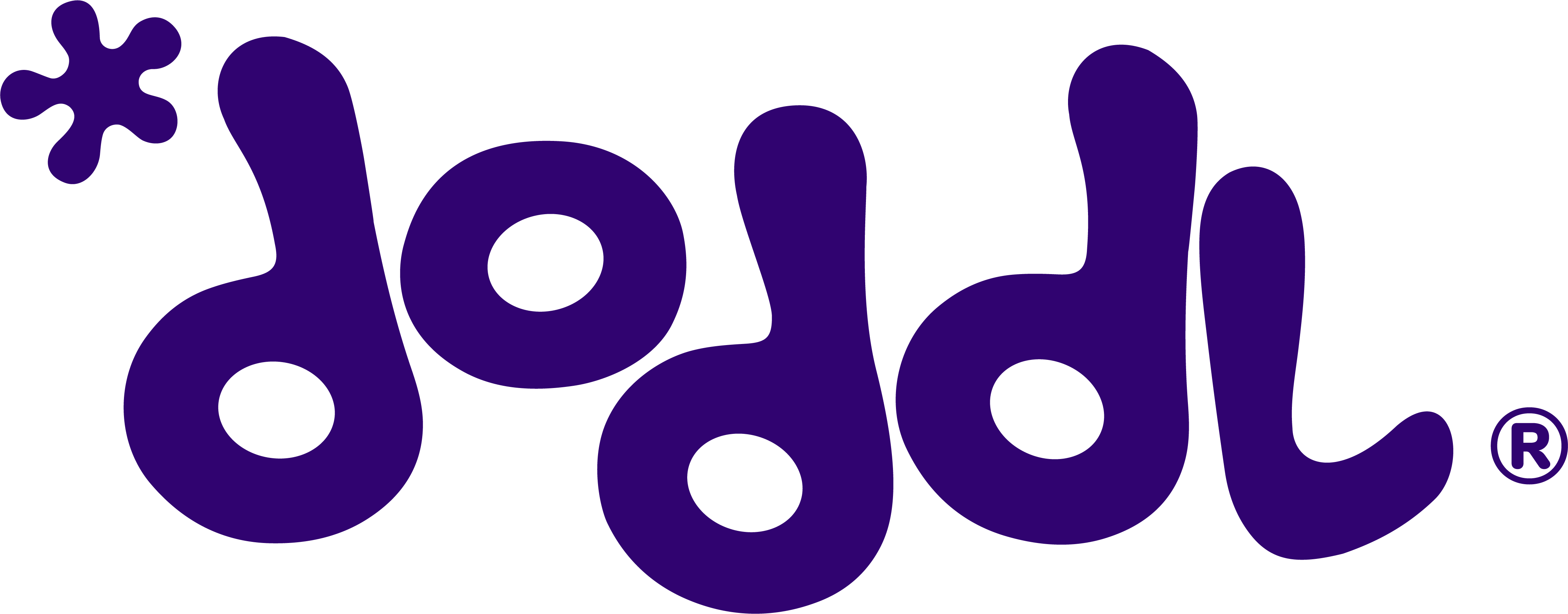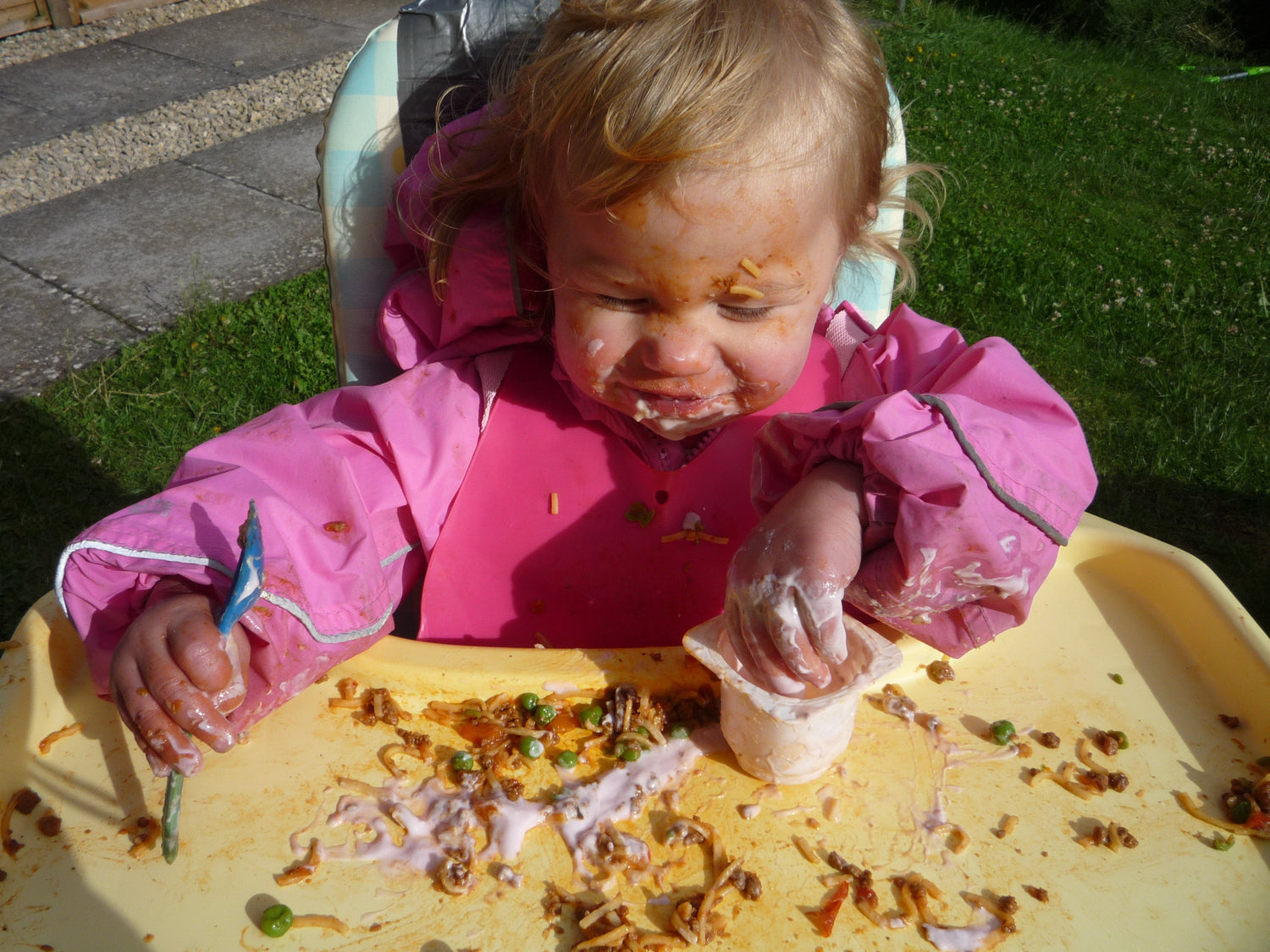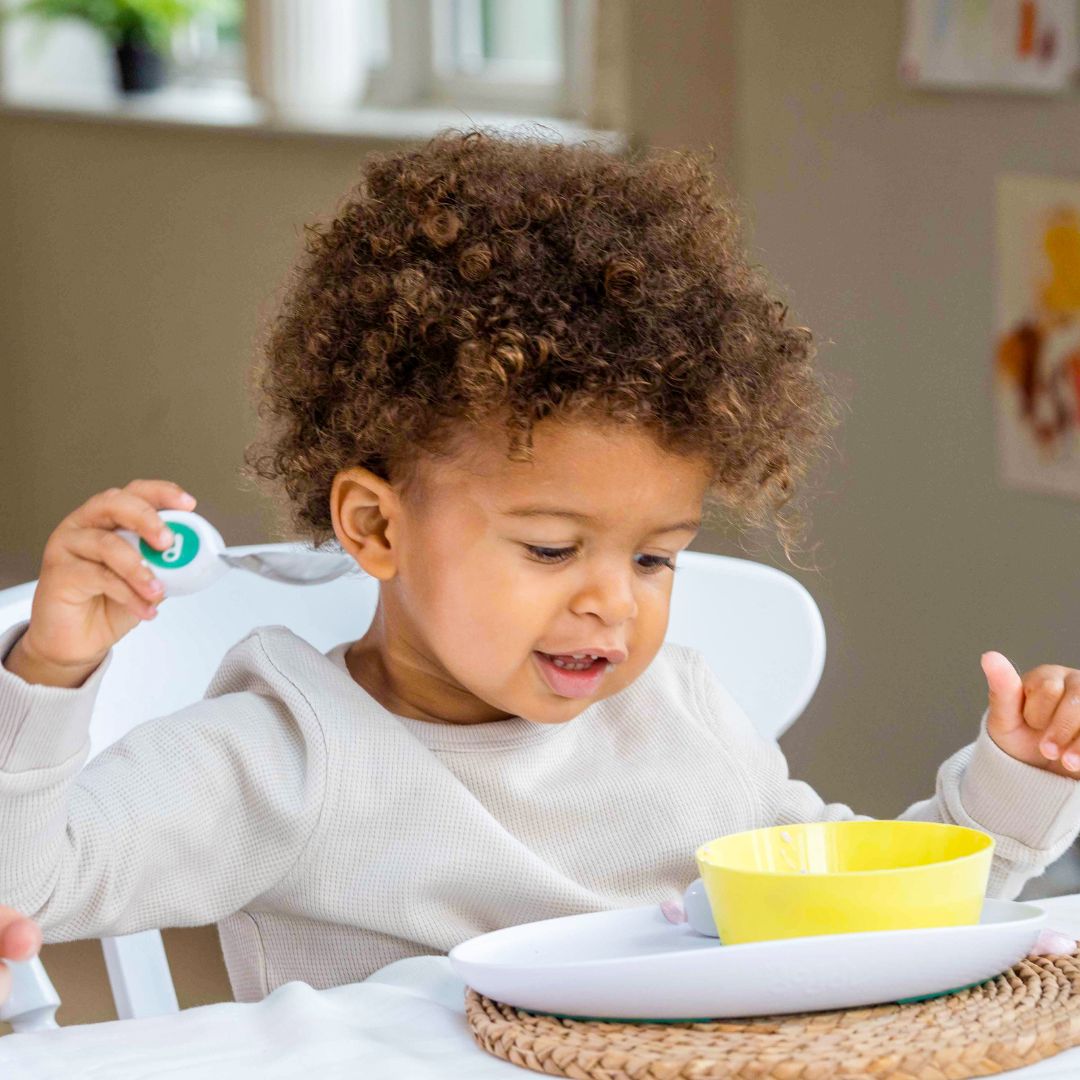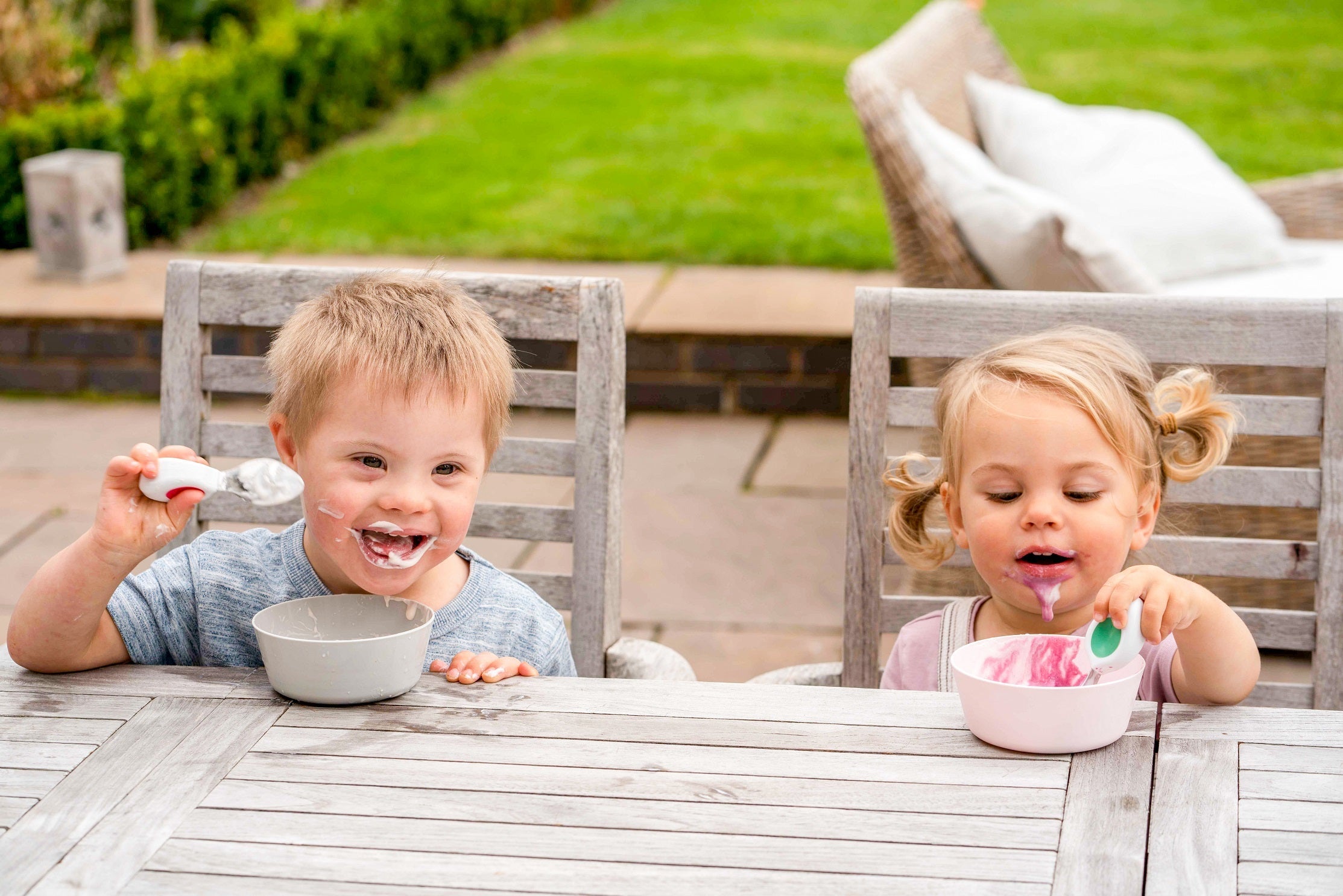Is there anything worse than making a meal and your toddler not eating it?
Yes! Your toddler not eating it and then proceeding to throw it on the floor! I am Stacey Zimmels, Feeding and Swallowing specialist speech therapist and doddl's expert partner. Here are my top 5 tips to stop your toddler throwing food:
1. What are they telling you?
Observe and take note of when in the mealtime your toddler is throwing food. Food throwing often starts after they have eaten some/a lot of their meal already. It can be a sign that they are finished. I always recommend that your toddler is fed responsively. This means that they tell you they are done, regardless of how much they have eaten of the meal. If you think that this is the reason that your toddler is throwing their food, then ask them if they are done. Show them another way to communicate they are finished and end the meal if they continue to throw food.
2. Role model the behaviour you want
Are they looking for your attention? Try sitting with your child and eating together with them. This is a great way to keep your child engaged at the table without needing to use distractions and it may just distract them out of the food throwing. Role modelling to your child how they can eat, should support and encourage them to eat if they are hungry.
3. Ready for the next stage?
Self-feeding is a skill which can start at 6 months with the introduction of finger foods. It is possible that your little one is throwing food because they are ready for the next developmental steps of self-feeding. They become bored of picking up foods with their hands. It can help to change the size and shape of the foods from long sticks (from 8-9 months) to cube shapes so that they can practice their pincer grips. It may also be time to introduce cutlery. Choose short and wide handled implements such as doddl, as they will be more likely to have success due to their design.
4. Choose the right cutlery
In some cases, toddlers throw food out of frustration. They are trying to use their cutlery to stab or scoop food but they are failing and becoming frustrated. It is really important to select cutlery that is ‘fit for purpose’ and that allows your toddler to take that next developmental feeding step. I used doddl toddler cutlery with my son and now recommend it to my clients. It is designed with short fat handles which are ideal for gripping and taking food to the mouth with minimal spillage. The metal tines of the fork make stabbing super easy which leads to SUCCESS from the start!
5. Be consistent
Decide your mealtime boundary and hold it. In my house food throwing is not ok and from an early age this was made clear to my little ones. Use simple straightforward language with clear gestures to communicate that it isn’t ok and to explain what you want your little one to do instead. End the meal if throwing continues. Be consistent so your toddler learns that they get the same outcome each time they throw food. So if you have a food thrower, you can see you don’t have to just sit back with a dustpan and brush waiting for the show to be over, there are things you can do to try and help. Consistency is key! So whilst you problem solve the reasons and try out the tips also remember to let your little one know that throwing food is not ok.
Our range of doddl baby cutlery, suitable for 6 months+ is perfect for introducing cutlery to your little one. The fork and spoon have smooth ends which feel comfortable in your baby's mouth and the short handles encourage the correct grip. The children's cutlery is suitable for 12 months+ and includes a fork, spoon and knife. The short, smooth handles encourage the correct finger placement, developing dexterity, coordination and control. This makes it easy to transition to adult cutlery as and when they are ready.




Leave a comment
This site is protected by hCaptcha and the hCaptcha Privacy Policy and Terms of Service apply.